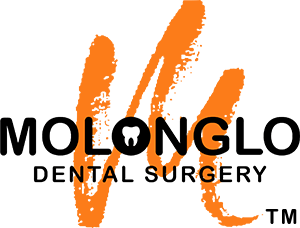Jaw pain can result from physical injuries, trauma to the nerves (nerve pain) or blood vessels, diseases and other causes.
Temporomandibular joint disease is a group of conditions that affect the bones, joints, and muscles responsible for jaw movement.
The symptoms vary but they may include one or more of the following:
● Pain on Blinking
● Biting or chewing difficulty or discomfort
● Clicking, popping, or grating sound when opening or closing the mouth
● Dull, aching pain in the face
● Earache (particularly in the morning)
● Headache (particularly in the morning)
● Hearing loss
● Migraine (particularly in the morning)
● Jaw pain or tenderness of the jaw
● Reduced ability to open or close the mouth
● Tinnitus or ringing in the ears
● Neck and shoulder pain
● Dizziness
The section below lists some of the potential causes.
Trauma
A cracked jaw: This can result from a fall or a hit to the face.
A dislocated jaw: This can result from opening the mouth too wide.
Certain dental procedures or surgery: This can cause jaw pain because it can take time to recover from a procedure.
Teeth grinding or Bruxism
Many people grind or clench their teeth while they sleep. It can lead to considerable tooth damage and jaw pain.
Arthritis
Arthritis and some inflammatory conditions can cause the wearing of the smooth interface between the joints of the jaws and the jaw-bones. This leads to a pain in the jaw.
Dental infections
Gum disease, cavities,spaces between teeth, damaged teeth, and abscesses in teeth can cause jaw pain.
Neuropathic pain/ Trigeminal Neuralgia
Neuropathic pain arises when the nerves become damaged. Symptoms can be continuous or occasional.
Osteomyelitis
In rare cases, an infection called osteomyelitis can affect the jaw bone and associated tissues. This is a rare complication of dental surgery.
Tension headaches
A tension headache is the most common type of headache. They generally result from stress. Unlike migraines, they don’t cause vision problems, nausea and vomiting.
Other conditions
Some other conditions that may give rise to jaw and facial pain include:
● Salivary gland infections
● Stress, fatigue, lack of sleep
● Autoimmune conditions
● Obstructive sleep apnea
● Sinusitis
● Ear infections
● Some mental health conditions
● Certain cancers
● Infections in the temporomandibular joint
● Fusion of the bones that make the jaw
● Sinus problems
● Heart attack
Symptoms
The specific and accompanying symptoms of jaw and facial pain will vary depending on the cause.They may include:
● Facial pain that worsens on using the jaw
● Joint and muscle tenderness
● Inability to open the mouth (trismus)
● Asymmetry of the face
● Ringing in the ears
● Jaw locking and clicking
● Earaches
● Headaches
● Dizziness
● Jaw locking
● Vertigo
● Toothache
● Fever
● Facial swelling
Complications
Inability to acquire timely attention for their jaw pain may result in one or more of the following complications:
-Dental complications
-Surgical complications
-Infections
-Ongoing pain
-Emotional distress
-Loss of appetite due to pain or difficulty chewing and -swallowing
Diagnosis
To diagnose Jaw Pain, the doctor will conduct an thorough examination using one or all of the following:
1. Questionnaire about the type, duration and severity of the pain
2. Examination of your head and neck
3. Examination of the muscles of your face
4. Checking the jaw for clicking, locking and other sounds
5. Evaluating the maximum mouth opening
6. checking the movement of the jaw from side to side
7. Examining your teeth for cavities, worn -chewing surfaces, missing teeth and the way in your teeth meet.
8. certain special X-rays, as needed.
In some cases, your Canberra dentist might also suggest psychological and psychiatric screening or a specialist opinion,as a part of a detailed evaluation.
Treatment
Treatment generally depends on the cause of the pain. Various treatment modalities are available. They are:
● Limitation of aggravating factors such as chewing hard food, chewing gums or fingernails.Temporary alterations in diet, as needed.
● Physical therapy in the form of jaw exercises, muscle relaxation techniques and massages.
● Occlusal splints as an adjunctive treatment
● Modification of occlusion using orthodontics, fillings, prostheses or dental implants, as recommended.
● BOTOX
● Identifying the dysfunction and thereby regulating it.
● Gradual reduction in stress causing factors
● Behavioural modification towards controlling causative elements
● Medications such as analgesics, muscle relaxants and antidepressants, as deemed necessary.
● Joint surgery, generally the final resort if all other treatments do not give the desired relief. However your dentist may recommend minor surgical procedures as a supplemental treatment as well depending on the initial diagnosis. (In severe cases)
● Avoiding extreme jaw movements (such as wide yawning, loud singing, and gum chewing)
The discomfort from joint disorders such as jaw pain will eventually go away on its own. Easy self-care practices are often effective in alleviating symptoms. A lock jaw is an agonising and a excruciating condition.At Molonglo Dental Surgery base our treatments on a satisfactory diagnosis. Your lockjaw dentist at Molonglo Dental Surgery will diagnose and put your locked jaw in place cautiously and advise optimum care thereafter.



